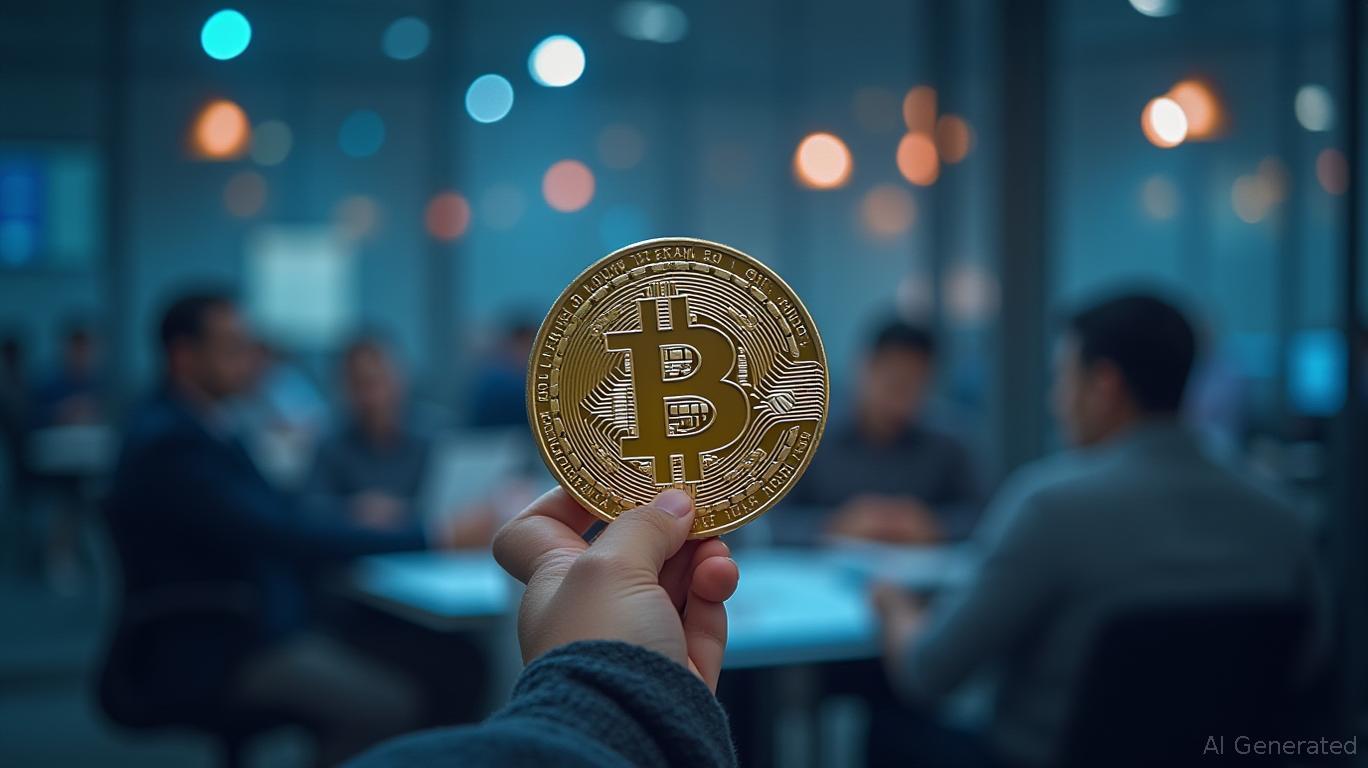Malaysia Strives for Crypto Advancement While Exercising Regulatory Prudence in Tokenization Efforts
- Malaysia's central bank (BNM) launched a 3-year plan to tokenize real-world assets, targeting SME financing gaps and financial inclusion via blockchain solutions. - The roadmap includes 2026 pilot trials in supply chain finance, Islamic finance, and green bonds, with large-scale testing by 2027 and a focus on tangible economic benefits. - BNM established a Digital Asset Innovation Hub and industry working group, prioritizing compliance over pure experimentation while exploring CBDC integration and stable
Bank Negara Malaysia (BNM), the country’s central bank, has announced a three-year strategy to investigate the tokenization of real-world assets as part of efforts to upgrade Malaysia’s financial system and tackle key economic issues. Details of this plan were shared in a
Coinpedia further noted that the central bank’s plan centers on projects that provide measurable economic value, ensuring tokenization is only used where it brings clear advantages. For example, SMEs might use tokenized invoices to access quicker and more affordable funding, while Islamic finance could utilize smart contracts to streamline Shariah-compliant transactions. BNM also pointed to the potential for tokenized green bonds to link payments to verified environmental results, helping to minimize greenwashing in Malaysia’s RM240 billion ESG market, as mentioned in a

This move is in line with broader developments in the region, as regulators in Singapore and Hong Kong have also
Observers have likened this initiative to Singapore’s Project Guardian and Hong Kong’s tokenized green bond programs, but Malaysia’s particular focus on SMEs and Islamic finance distinguishes its approach, FinanceFeeds noted. BNM’s careful, step-by-step strategy is designed to avoid the instability seen in open cryptocurrency markets, while still encouraging innovation in a regulated setting. Industry analysts point out that the outcome of these pilot projects will depend on effective cooperation among regulators, financial institutions, and technology providers to overcome technical and regulatory challenges, Coinpedia added.
Disclaimer: The content of this article solely reflects the author's opinion and does not represent the platform in any capacity. This article is not intended to serve as a reference for making investment decisions.
You may also like
Bitcoin Updates: Hong Kong's Cryptocurrency Regulations Ignite Clash Between Digital Assets and Conventional Banking
- Franklin Templeton CEO Jenny Johnson highlights crypto's disruptive potential, framing it as a bridge to traditional finance amid institutional adoption and Bitcoin's "digital gold" appeal. - Hong Kong's SFC reforms enable crypto exchanges to access global liquidity pools, accelerating blockchain integration while maintaining investor protections under Fintech Week 2025 initiatives. - Market volatility contrasts with institutional optimism: Coinbase reports 25% Q3 revenue growth, while Saylor predicts $1

Ethereum News Today: Ethereum's 3-Day Drop: Will the Next Move Be Upward or Signal a Downtrend?

FTSE Russell and Chainlink Transform Markets by Integrating Conventional and DeFi Indices
- FTSE Russell partners with Chainlink to publish market indices onchain via DataLink, bridging traditional and decentralized finance. - The collaboration provides real-time, tamper-proof data for indices like Russell 1000 and FTSE 100 across 50+ blockchains, supporting $18T AUM. - This initiative accelerates tokenized asset adoption and enables next-gen financial products, leveraging Chainlink's $25T-secured infrastructure for institutional-grade trust. - By democratizing access to benchmarks, the partner

South Korea's Rapid Growth in Stablecoins Meets Regulatory Hesitation
- South Korea is rising as a key stablecoin hub, balancing innovation with regulatory scrutiny as Tether and local projects reshape global finance. - Tether now holds $135B in U.S. Treasuries, surpassing nations like South Korea and UAE, positioning it as a major Treasury market influencer. - BDACS launched KRW1, a won-pegged stablecoin on Circle's Arc blockchain, aiming to integrate Korean businesses into global blockchain networks. - Bank of Korea warns of depegging risks for private stablecoins, contras
